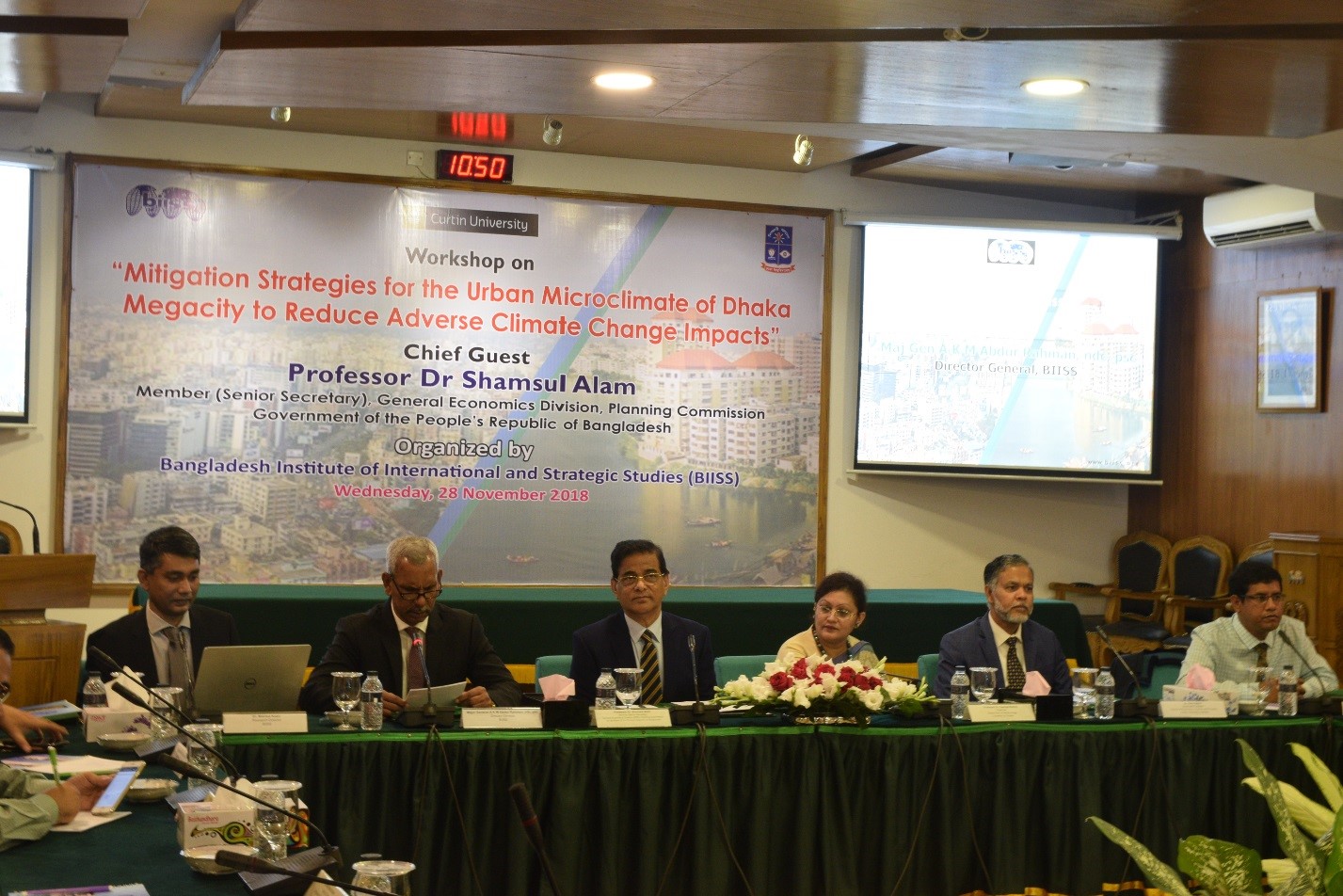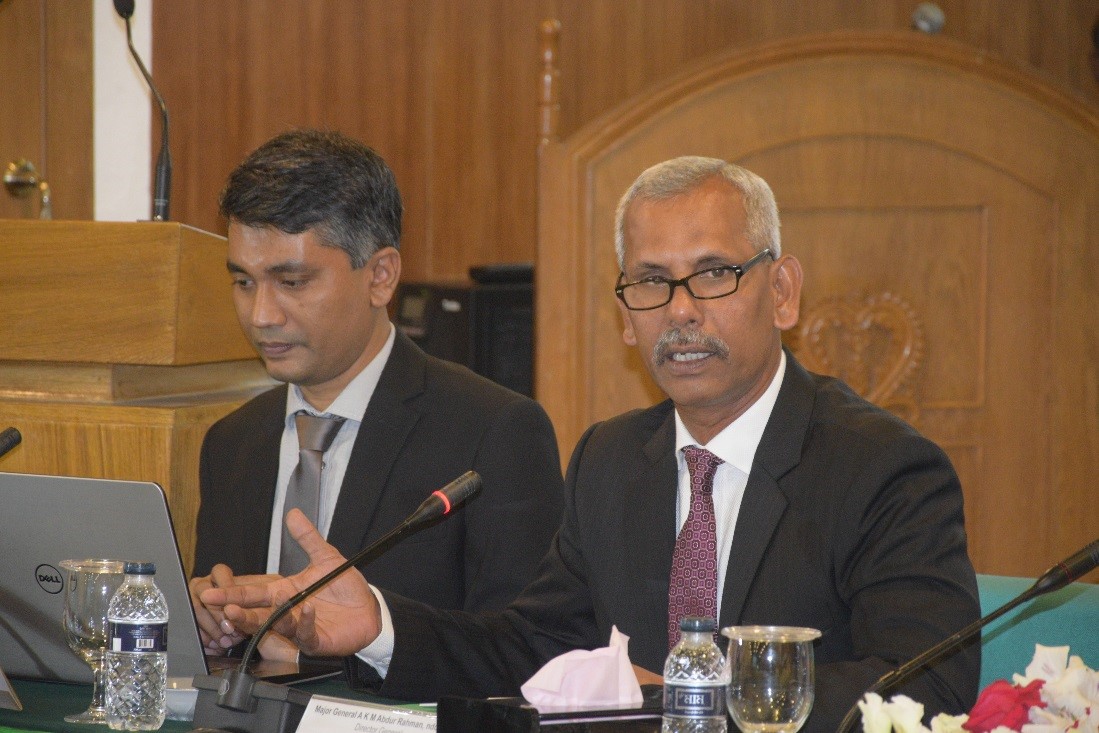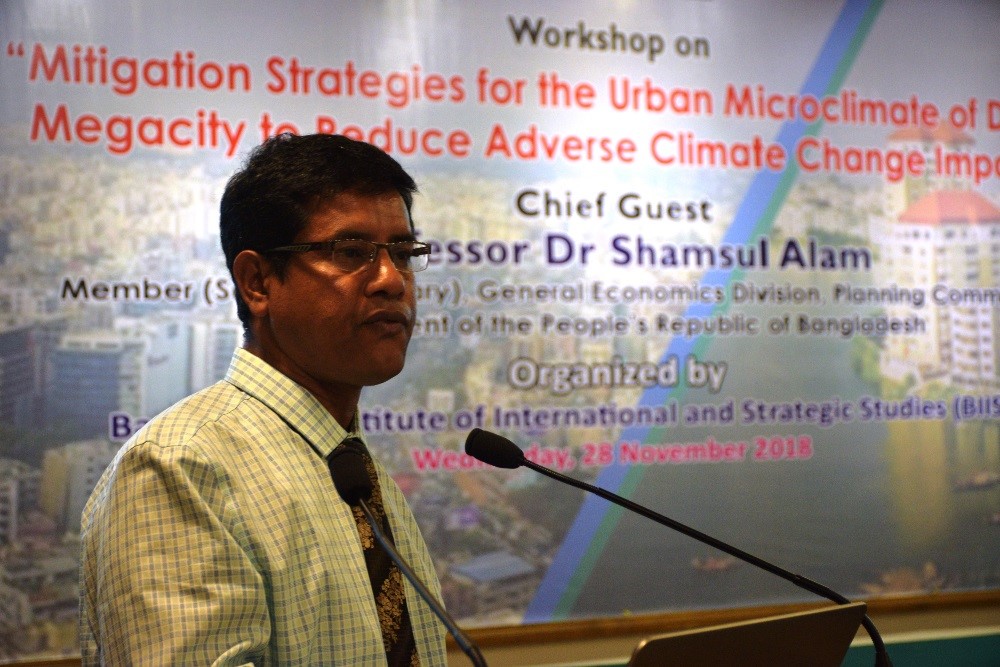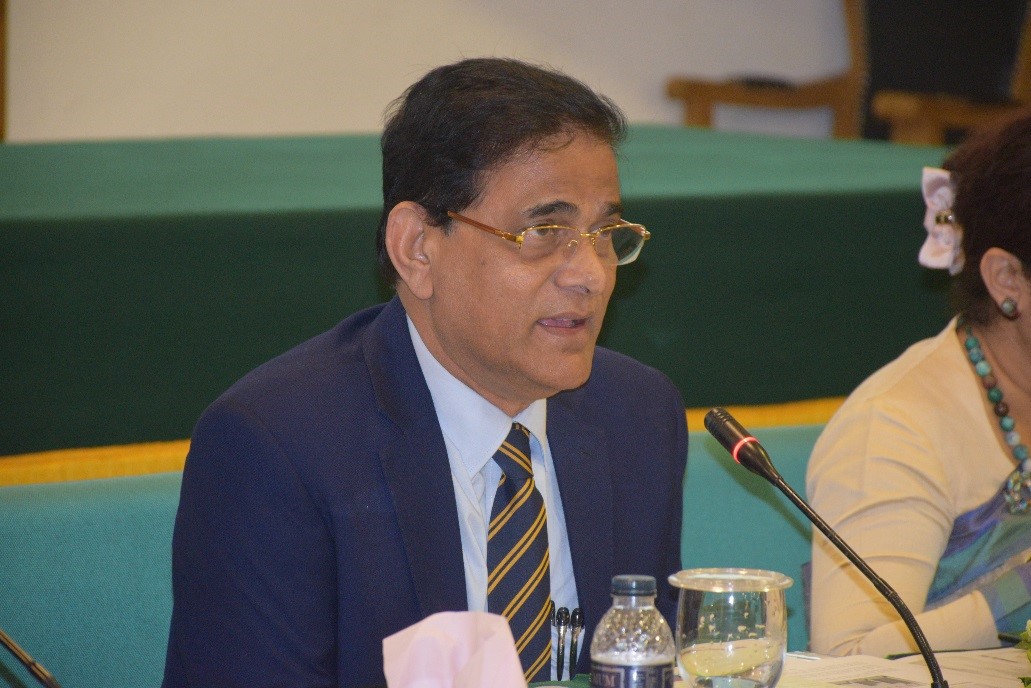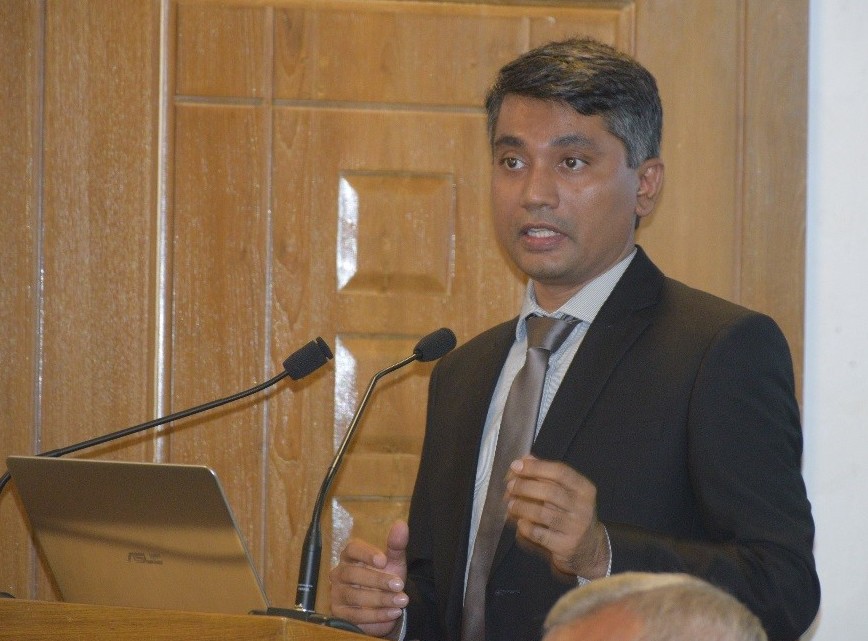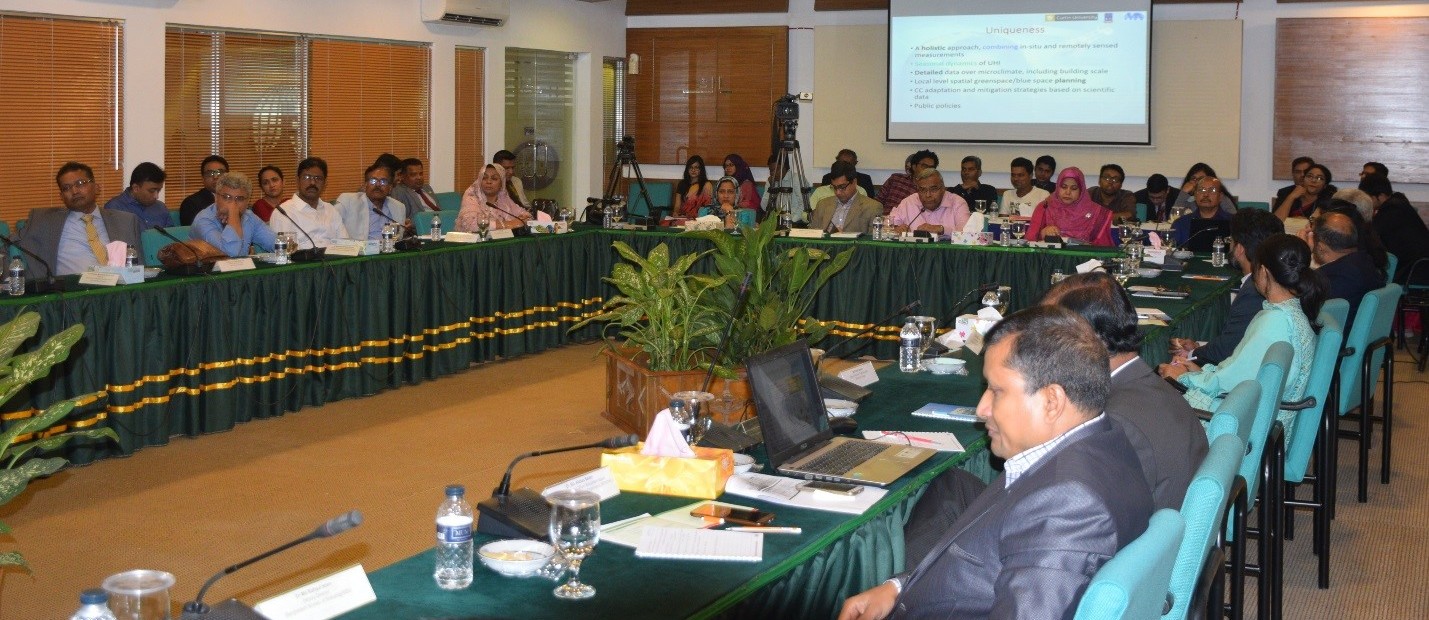Workshop on "Mitigation Strategies for the Urban Microclimate of Dhaka Megacity to Reduce Adverse Climate Change Impacts" on 28 Nov 2018
DATE: 2018-11-28
Inception workshop of the research titled “Mitigation Strategies for the Urban Microclimate of Dhaka Megacity to Reduce Adverse Climate Change Impacts” was held on 28 November 2018 at BIISS auditorium. The research is being jointly undertaken by Bangladesh Institute of International and Strategic Studies (BIISS); Curtin University, Australia and Department of Meteorology, University of Dhaka; under the funding of World Bank’s “Innovation Funding and Global Partnership for Sustainable Development Data” initiative. Professor Dr. Shamsul Alam, Member (Senior Secretary), General economics Division, Planning Commission, Government of the People’s Republic of Bangladesh, graced the occasion as the Chief Guest. Professor Dr Towhida Rashid, Chairman, Department of Meteorology, University of Dhaka, chaired the workshop.
Major General A K M Abdur Rahman, ndc, psc, Director General, BIISS, delivered the Welcome Address at the workshop. In his speech, he highlighted that Dhaka megacity was witnessing a phenomenon known as Urban Heat Island (UHI) Effect which is a unique feature of climate change and the city dwellers are suffering greatly from it. He also described his own personal experience to illustrate how quickly the city of Dhaka was expanding, and emphasised on the demerits like land filling, water clogging and removal of vegetation.
The workshop began with a presentation titled "Mitigation Strategies for the Urban Microclimate of Dhaka Megacity to Reduce Adverse Climate Change Impacts”, which was presented by Dr Ashraf Dewan, School of Earth and Planetary Sciences, Curtin University, Australia and Dr Mahfuz Kabir, Research Director, BIISS.
Dr. Dewan focused his part of the presentation on the study design and scientific components. He said that the phenomenon called Urban Heat Island effect is having great impact both globally and locally. In 2015, 1500 people were killed in Pakistan because of heat wave and Urban Heat Island effect could further intensify this impact. The outbreak of vector borne disease, Dengue, was regenerated after 2000. Indications of other vector borne diseases that are prevalent in Dhaka city includes Chikungunya and also Cholera. These too are related with the increase of the heat. This research is very important because it will focus on the Urban Heat Island effect and associated impacts.
Dr. Kabir concentrated on the cost-benefit analysis part of the study. He said that under this project, economic, social and aesthetic benefits and costs of green spaces will be evaluated using pilot survey and in-depth case studies focusing on green spaces and blue spaces. The economic viability of the green -blue spaces will be calculated by Net Present Value (NPV) and Internal Return Rate (IRR). Overall costs including the planting, removal, maintenance and other associated costs will be considered. Aesthetic benefits like the love to plants, energy savings, direct benefits from the products such as fruits and vegetables, government benefit like tax will be considered as well.
Following the presentation, the panelist presented and discussed on different aspects of issue including economic considerations, cost benefit analysis, scientific data and architecture. Professor Dr Abdus Salam, Department of Chemistry, University of Dhaka; Professor Dr AK Enamul Haque, Department of Economics, East West University, Dhaka; Professor Dr Kazi Maruful Islam, Department of Development Studies, University of Dhaka; Mr Iqbal Habib, Member Secretary, Bangladesh Poribesh Andolan and Mr Ahsan Rony, Founder & President, Green Savers, Dhaka were present as distinguished panelists at the workshop.
In his speech, the Chief Guest Professor Dr Shamsul Alam, Member (Senior Secretary), General economics Division, Planning Commission, Government of the People’s Republic of Bangladesh, flagged that Bangladesh as a country was facing several harsh impacts of climate change, including in the cities. He highlighted some data on his speech that showed how the climate of Dhaka city has changed over time and has had an influence on the ecological setting, agro-production, industrial production, human behavior and disease. He emphasised that all climate related problems are interrelated and that is why there is a need for comprehensive and long-term plans. He talked about the various initiatives that the government has undertaken on the issue.
The workshop included a lively open discussion where Senior officials from different ministries of Bangladesh, town planning and management authorities, representatives from different concered organisations, media, academia, researchers, teachers from various universities participated and expressed their valuable opinions and observations on the topic. They voiced their concern over the rapid unplanned urbanisation of Dhaka megacity and the need to take immediate intiatives to save the city’s environment.

